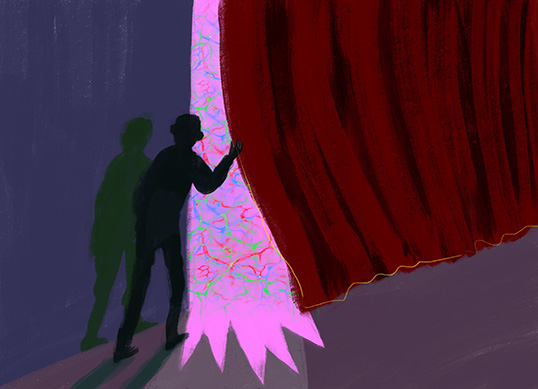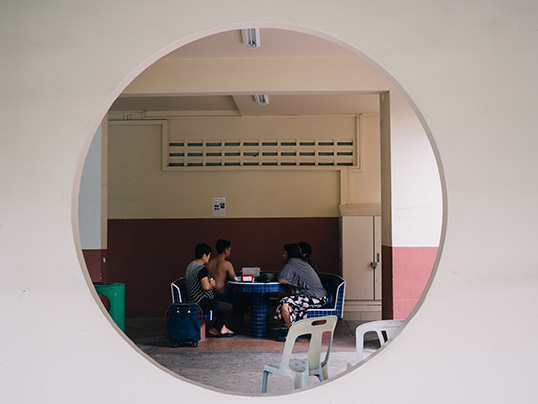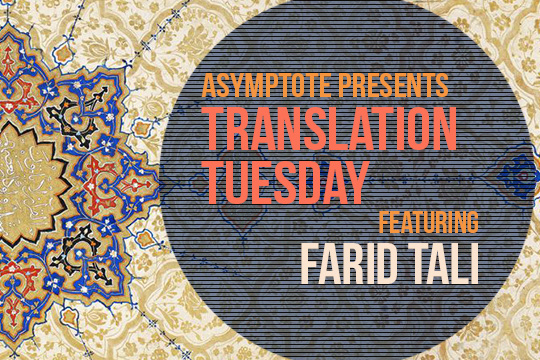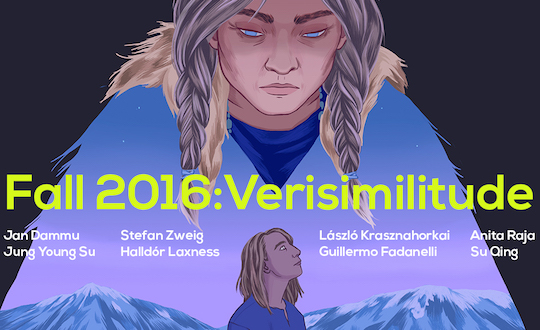The brand new Spring 2018 issue of Asymptote Journal is almost one week old and we are still enjoying this diverse set of writing. Today, our section editors share highlights from their respective sections.
The phrase “Once upon an animal” has been circulating in me for months, ever since I first read Brent Armendinger’s translations of the Argentine poet Néstor Perlongher. The familiar fairy tale opening, ”Once upon a . . .” asks one to think of a moment, distant, in time, when such and such happened—happened miraculously or cruelly and from which one might take (dis)comfort or knowledge of some, perhaps universal, human frailty or courage. But Perlongher/Armendinger replace “time” with “animal”—a body. Against time, in its very absence, we’re asked to look at this body, which is in anguish, now. Perhaps now too is in anguish.
I can’t read Spanish, but the translation suggests a poetry of complex syntactical structures and lexical shock:
Once upon an animal fugitive and fossil, but its felonies
betrayed the same sense of petals
in whose gums it stank, tangled, the anguish
impaled, like a young invader
A feat of translation, no doubt. Armendinger writes that “this intensely embodied and unapologetically queer language” is what drew him to Perlongher, and now we too are drawn in.
Perlongher was a founder of the Frente de Liberación Homosexual Argentino, agitated against the military dictatorship, and, as an anthropologist, wrote about sex workers, and gay and transgender subcultures. All this—writing, work, and play—was perhaps yet another way of saying: “Be still, death:”; “in the steam of that / eruption: ruptured play, rose / the lamé.”
—Aditi Machado, Poetry Editor












